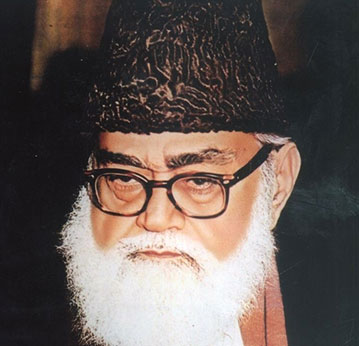Leadership

Founder of Jamaat-e-Islami
Syed Abul Ala Maududi
(1903-1979)
Birth & Family
Syed Abul A‘la Maududi was born in 1903 (1321 AH) in Aurangabad, Deccan. He belonged to a noble Sayyid family originally settled near Herat in a place called Chisht. One of his famous ancestors was Khwaja Qutbuddin Maudood Chishti, the spiritual mentor of Khwaja Moinuddin Chishti Ajmeri. The family name “Maududi” is derived from Khwaja Maudood Chishti.
Maududi was raised in a deeply religious household. Both his parents led pious lives, and his father personally supervised his religious and moral training. He was educated at home in Urdu, Persian, Arabic, as well as in Fiqh (Islamic jurisprudence) and Hadith, under private tutors.
Early Upbringing
Formal Education
Livelihood
Journalism & Early Ideology
First Major Book: "Al-Jihad fi al-Islam"
Commitment to Reform
Maududi relocated to Hyderabad Deccan and began publishing the journal Tarjuman al-Qur’an in 1932 to counter Western influences and reawaken Islamic thought. He argued Islam is a complete code of life and began systematically working to revive Islamic values.
His influential books like Parda, Tanqeehat, and Tafheemaat played a key role in breaking Western influence on the Muslim mindset and laying the foundation for Jamaat-e-Islami.
